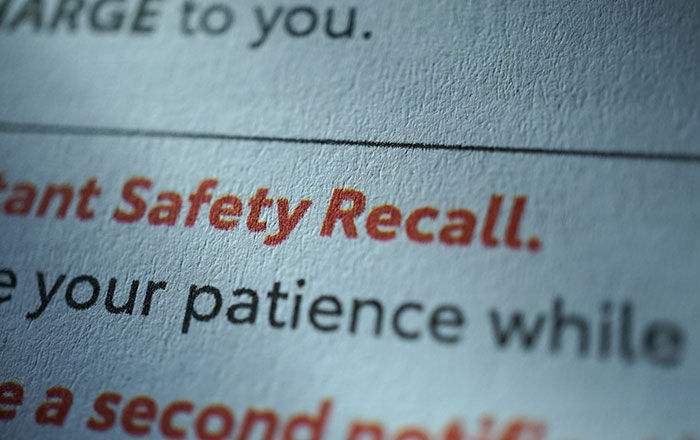Acetaminophen, commonly sold under the brand name Tylenol, is one of the most widely used painkillers and fever reducers in the United States and can be bought over the counter at any supermarket or drugstore. Although it was previously considered safe to use during pregnancy, a growing body of research has linked prenatal Tylenol use with autism spectrum disorder (ASD) and attention-deficit hyperactivity disorder (ADHD).
However, makers of Tylenol and other products containing acetaminophen have ignored those studies and failed to warn parents of the risks posed to their unborn children. Instead, they have continued to market acetaminophen as being safe to use during pregnancy.
Prenatal use of acetaminophen linked to autism & ADHD
Research has found that acetaminophen can negatively affect a child if their mother uses the painkiller while pregnant – something which an estimated 70% of pregnant women do, since it has historically been referred to as a safe way to relieve pain and fever during pregnancy. In addition to being sold as Tylenol, acetaminophen is present in more than 600 other products including NyQuil, DayQuil, and Excedrin.
In May 2021, a study published in the European Journal of Epidemiology found that children exposed to acetaminophen before birth were 19% more likely to develop autism and 21% more likely to show signs of ADHD.
Another study, conducted by Johns Hopkins and published in JAMA Psychiatry in 2019, measured acetaminophen in newborn umbilical cord blood. It found that children with the highest levels of the drug in their cord blood were 3.62 times more likely to be diagnosed with ASD and 2.86 times more likely to be diagnosed with ADHD.
One of the co-authors of that study noted that although people generally believe Tylenol is “benign,” the research “further supports the concerns raised by previous studies – that there is a link between Tylenol use during pregnancy and increased risk for autism or ADHD.”
Meanwhile, a 2018 study published in the American Journal of Epidemiology involving questionnaires from more than 132,000 pairs of mothers and children found that children born to women who used acetaminophen for an extended time while pregnant had a 20% greater risk of autism and a 30% greater risk of ADHD.
In addition, a 2014 study published in JAMA Pediatrics used data from more than 64,000 children and mothers enrolled in the Danish National Birth Cohort and found that children born to women who used acetaminophen while pregnant were 13% to 37% more likely to be diagnosed with hyperkinetic (hyperactive) disorder, be treated with ADHD medications, or have ADHD-like behaviors by age 7. The risk was even greater among children whose mothers used acetaminophen for more than 20 weeks of their pregnancy. The study notes that the painkilling drug can cross the placental barrier and suggested that acetaminophen may interrupt fetal brain development by interfering with maternal hormones or through neurotoxicity.
The revelation that prenatal use of acetaminophen isn’t as safe as previously believed prompted 91 scientists, clinicians, and public health professionals from across the globe to issue a consensus statement which advises pregnant women to avoid acetaminophen unless otherwise instructed by a medical professional.
Postnatal use of acetaminophen linked to autism
Acetaminophen was first linked to autism in a 2008 study published in the journal Autism. In that study, the lead researcher hypothesized that the nationwide rise in autism since 1980 was linked to the fact that the CDC recommended replacing aspirin with acetaminophen for infants and young children at around the same time – calling into question the previous assumption that it was actually the measles-mumps-rubella (MMR) vaccination causing the autism spike.
The research surveyed parents of 83 children with autism and 80 without autism, asking whether their children were treated with acetaminophen or ibuprofen after receiving the MMR vaccine. The study concluded that children given acetaminophen for reactions to the MMR vaccine were more likely to develop autism than children given ibuprofen.
The study was further supported by the fact that a decrease in sales of acetaminophen in 1982 and 1986 (caused by highly publicized tampering cases of cyanide-laced acetaminophen) coincided with plateaus in the incidence of autism in California.
Many years later, a 2017 study published in the Journal of International Medical Research suggested that autism could be “an acetaminophen-induced brain injury.” It noted that the use of acetaminophen in infants and young children may be more strongly associated with autism than its use in pregnancy, perhaps because of “well-known deficiencies in the metabolic breakdown of pharmaceuticals during early development.”
Although lawsuits are currently only being accepted for prenatal use of acetaminophen and its link to autism and ADHD, studies regarding postnatal use of the medication serves to strengthen the allegation that the substance is not as safe as previously believed – and that makers have known that since at least 2008.
Makers of acetaminophen products have misled parents
Companies that make any type of medication have a moral and legal obligation to ensure their products are safe, and to act swiftly if the safety of those products is called into question.
However, the makers of Tylenol and other acetaminophen products have instead chosen to ignore the growing body of evidence linking prenatal use of their products to autism and ADHD, violating the trust of those who believed them when they said their products were safe.
As a result, lawsuits are being brought against Johnson & Johnson (the maker of Tylenol) and generic acetaminophen makers including Walmart, Costco, Walgreens, CVS, and more, alleging that they failed to provide appropriate warnings about the dangers of using the drug while pregnant. Those who believe they have been affected are advised to contact a personal injury lawyer right away so they can review your case and guide you through the next steps.
McWhirter, Bellinger & Associates will fight for you
If you used acetaminophen during pregnancy and your child was later diagnosed with autism or ADHD, you may be able to join the growing number of plaintiffs who are seeking justice from Johnson & Johnson and generic acetaminophen makers.
McWhirter, Bellinger & Associates is providing free case evaluations to South Carolina residents who believe their child’s autism or ADHD was linked to their prenatal use of acetaminophen.
Our South Carolina personal injury lawyers have decades of experience dealing with dangerous drugs and products, and we know how to go head-to-head with the other side as they do everything they can to avoid paying out a fair sum. We believe in holding drug makers accountable when they blatantly disregard evidence that their products are dangerous, and we work tirelessly on behalf of our clients’ best interests so they can receive closure and compensation.
Although no amount of money can ever make up for the fact that your child was harmed by acetaminophen, we will do everything we can to make sure Johnson & Johnson and other makers are held accountable for failing to provide adequate warnings about the risks associated with prenatal use of their products. It’s simply not right for a child to be harmed before they were even born, all because their mother was misled by companies that knew their products could be dangerous.
With seven offices across the Midlands of South Carolina, McWhirter, Bellinger & Associates is standing by ready to help. Give us a call today at 888-353-5513 for a free case evaluation.















